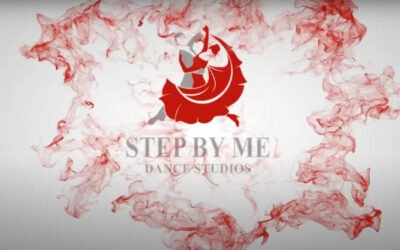Understanding Dance Class Anxiety
Starting a new dance class can be both exhilarating and intimidating. As someone who has stepped into many studios, I know firsthand how nerve-wracking it can be to face the unknown. The fear of making mistakes in front of strangers, worrying about not keeping up, or even the anxiety of wearing the right attire can all contribute to pre-class jitters. Understanding these feelings is the first step in conquering them.
Dance class anxiety is a common experience for beginners and seasoned dancers alike. The thought of performing in front of others can trigger a fight or flight response, causing physical symptoms such as a racing heart, sweaty palms, or a queasy stomach. These reactions are natural, and recognising them for what they are can help demystify the experience.
By acknowledging that anxiety is a normal part of the learning process, we can begin to develop strategies to manage it. Instead of letting it paralyse us, we can view it as a sign that we care about our performance and progress. This mindset shift can transform nerves into a motivating force, propelling us toward personal growth and enjoyment in the dance studio.
Common Sources of Nerves Before a Dance Class
Several factors can contribute to the anxiety felt before attending a dance class. One major source of nerves is the fear of judgement from instructors and fellow students. We often worry about how we will be perceived, whether we will be the least experienced in the room, or if our mistakes will stand out. Understanding that everyone is there to learn can help alleviate these concerns.
Another common source of anxiety is the fear of the unknown. Not knowing what to expect in terms of class structure, level of difficulty, or even the type of music can trigger apprehension. Preparing by researching the class description, watching videos, or speaking with the instructor beforehand can help set realistic expectations and reduce uncertainty.
Finally, personal insecurities about one’s body or ability can heighten anxiety. Comparing ourselves to others can lead to self-doubt, which is counterproductive in a learning environment. Embracing our unique journey and focusing on our own progress rather than that of our peers can create a more positive and constructive mindset.
PLEASE NOTE: Some of the dance styles mentioned below are not taught at Step by me dance studios, they have been added for internet marketing purposes. WE ONLY TEACH BALLROOM & LATIN. Click here for the types of dance page, to see which dance styles we teach.
How to Overcome Nerves Before Your First Dance Class
- Preparation is Key: Familiarising yourself with the class format and what to expect can significantly reduce anxiety. Most studios provide information about the class style, duration, and level. Use this to mentally prepare and set your expectations.
- Visualisation Techniques: Before your first class, spend a few moments visualising a successful and enjoyable experience. Picture yourself moving confidently, enjoying the music, and learning something new. Visualisation can be a powerful tool in reducing anxiety and building self-confidence.
- Breathing Exercises: Incorporating deep breathing exercises can help calm your nerves before stepping onto the dance floor. Deep breathing helps to regulate the nervous system, providing a sense of calm and focus. Practising this before class can help centre your thoughts and reduce stress.
Tips on How to Not Be Nervous Before Dancing
- Dress Comfortably: Wearing clothes that make you feel good and allow for movement can boost your confidence. Opt for attire that aligns with the class style, ensuring you can move freely and are comfortable.
- Arrive Early: Give yourself plenty of time to settle in before class starts. Arriving early allows you to acclimate to the environment, meet the instructor, and perhaps chat with other students, reducing feelings of isolation.
- Set Realistic Goals: Rather than aiming for perfection, focus on achievable goals, like learning a new step or enjoying the music. This shifts the focus from performance anxiety to personal growth and enjoyment.
Preparing Mentally and Physically for Your First Dance Class
Mental Preparation
- Positive Affirmations: Repeating affirmations like “I am capable” or “I am here to learn” can help foster a positive mindset.
- Mindfulness Practices: Engaging in mindfulness exercises can help keep you grounded and present, reducing anxiety about the future or past.
Physical Preparation
- Warm-Up Routine: Engage in a light warm-up before class to prepare your body for movement. Stretching and light cardio can help reduce tension and prevent injury.
- Hydration and Nutrition: Ensure you’re well-hydrated and have eaten a balanced meal or snack a few hours before class to maintain energy levels.
What to Know Before Your First Dance Class
- Class Etiquette: Familiarise yourself with common dance class etiquette, such as respecting personal space and following the instructor’s guidance.
- Studio Policies: Check if there are any specific studio rules or policies, such as dress code or class punctuality.
- Instructor Background: Knowing a little about your instructor can help you feel more connected and comfortable during the class.
How to Make Your First Dance Less Awkward
- Embrace Mistakes: Accept that mistakes are part of the learning process. They are opportunities for growth and should not be feared.
- Engage with Others: Introduce yourself to fellow students. Building a sense of community can help ease anxieties and make the experience more enjoyable.
- Focus on Fun: Remember that dancing is meant to be enjoyable. Let go of self-criticism and focus on the joy of movement and expression.
What Should You Avoid Before a Dance Class
- Overthinking: Avoid overanalyzing your performance or abilities before you’ve even begun. Stay open-minded and present.
- Negative Self-Talk: Refrain from negative self-criticism. Replace unhelpful thoughts with constructive and encouraging dialogue.
- Heavy Meals: Avoid eating a large meal directly before class, as it may lead to discomfort while dancing.
Strategies for Building Confidence in Dance
- Consistent Practice: Regular practice helps reinforce skills and build confidence. Consider attending classes regularly to see steady improvement.
- Celebrate Small Wins: Acknowledge and celebrate your progress, no matter how small. Recognising achievements can boost morale and motivation.
- Seek Feedback: Constructive feedback from instructors can provide valuable insights for improvement. Approach it with an open mind and willingness to learn.
Embracing the Dance Journey
The journey of learning to dance is as much about self-discovery as it is about mastering steps. Embrace the process with patience and compassion for yourself. Every dancer started as a beginner, and it’s through perseverance and passion that skills are honed and confidence is built.
At Step By Me Dance Studios in London’s Westminster, our expert instructors are dedicated to making your dance experience enjoyable and fulfilling. Whether you’re a novice or looking to refine your skills, we’re here to support you every step of the way. Let us help alleviate any nerves you may have about dancing and guide you on your dance journey with confidence and joy.
Embarking on your first dance class is a brave and rewarding step. By understanding and addressing your anxieties, you can transform nerves into excitement and anticipation. Remember, the dance floor is a place of expression, creativity, and fun. So, take a deep breath, step onto the floor, and let the rhythm guide you.










